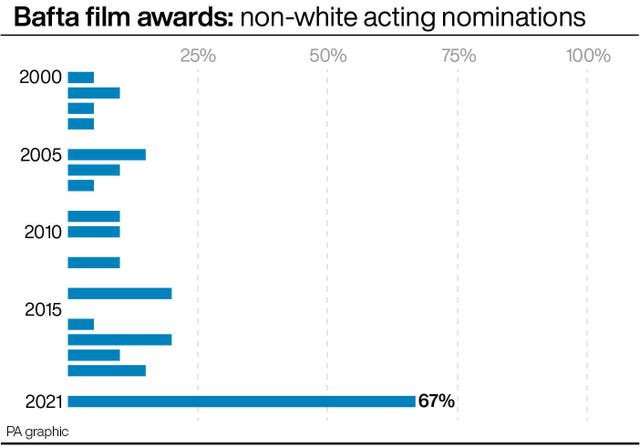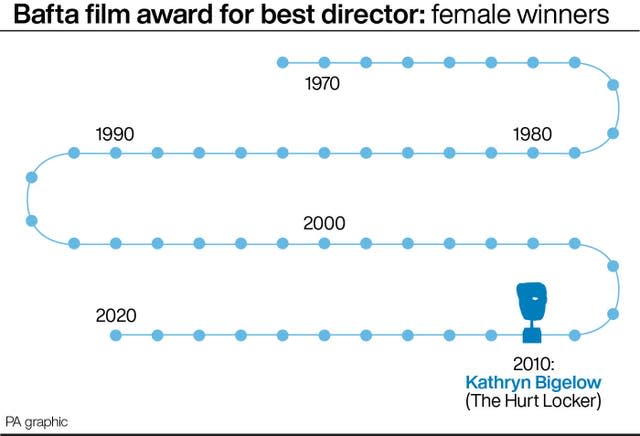Bafta nominations set stage for record-breaking diversity among winners
This year’s Bafta film awards could see a number of historic firsts, thanks to a slate of nominations that have smashed records for diversity and representation.
Two-thirds of the acting nominations are for non-white performers.
Not only is this the highest proportion of non-white acting nominations in the history of the Baftas, it is also the first time white people have not made up the majority.
It represents a major turnaround from last year, when every acting nominee was white.

Before this year, the highest proportion of non-white nominees across all the acting categories was one fifth, in both 2014 and 2017.
With four of the six nominees for best actress from an ethnic minority background, there is a strong chance this year could see the first non-white winner in this category.
The four are Bukky Bakray (for the film Rocks), Radha Blank (The Forty-Year-Old Version), Wunmi Mosaku (His House) and Alfre Woodard (Clemency).
Women make up the majority of nominees for best director – another first – and this could pave the way for a woman to win this award for only the second time in the history of the Baftas.
The first time was in 2010, when Kathryn Bigelow won for The Hurt Locker.

The four women in the running this year are Sarah Gavron (Rocks), Shannon Murphy (Babyteeth), Jasmila Zbanic (Quo Vadis, Aida?) and Chloe Zhao (Nomadland).
The Bafta for best supporting actress has never been won by a non-white British performer, but that could change if either Kosar Ali (Rocks) or Ashley Madekwe (County Lines) takes the prize on Sunday night.
If Daniel Kaluuua wins best supporting actor for Judas And The Black Messiah, he will be only the second non-white British performer to do so.
The first was Dev Patel, who won the award in 2017 for his role in the film Lion.
Of the four acting awards – best actor, best actress, best supporting actor and best supporting actress – no more than two have ever been won in the same year by performers from an ethnic minority.
Thanks to the record-breaking diversity of the nominees, 2021 could well be the first time a majority of acting awards go to non-white performers.


